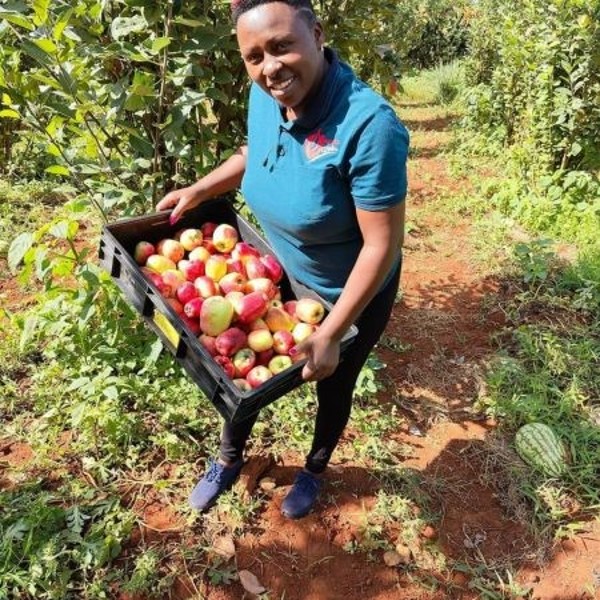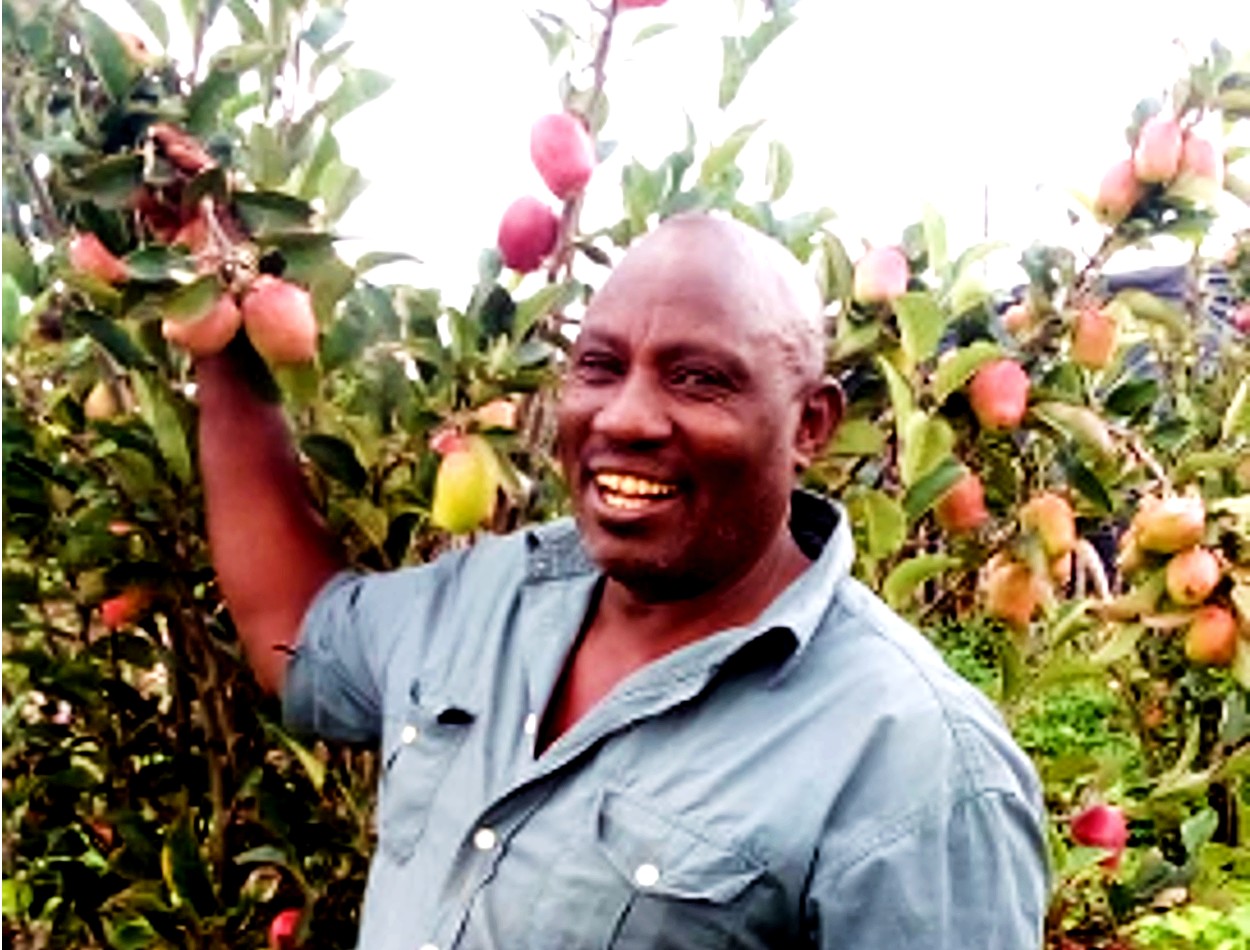When it comes to cash-crop farming, Kenya has always been known for its first-grade tea and coffee exports. What is mostly unknown is that Kenya is the source of a sweet, weird-looking but popular apple breed called the Wambugu Apples.
After recently indulging in a whole six-pack of these apples, I wanted to know why these sweet apples were called Wambugu apples. It definitely had something to do with a Wambugu.
We all know that an apple a day keeps the doctor away. However, to the Wambugus, apples have not only kept doctors away but also kicked out poverty from their lives for generations to come.
In 1985, Peter Wambugu, the founder of Wambugu Apples was on the Aberdare Ranges on the slopes of Mt. Kenya when he stumbled upon some amazing apple fruits. He had once seen apple trees but this tree was so eye-catching and unique in its own way.
When he tasted the fruits, he immediately knew that this was not the ordinary apple that people were eating outside there. Out of curiosity, he took the fruits and decided to take some home. As a farmer, his curiosity certainly encouraged him to do something with the seeds. Marinate and simmer and deep fry the seeds to make something out of, or whatever farmers do with seeds.
After being a coffee farmer for so many years without getting much out of it, Paul Wambugu decided to venture into apple farming. However, he needed to make his Apple business so much better. He wanted to disrupt the market with his brand.
He also knew it wasn’t a coincidence he had bumped into such an amazing type of seed. He could do what he wanted with them. He was also sure the market did not have such a breed.
Knowing all too well that apple farmers had already captured the limited Kenyan market, what was he going to do differently so that he could get himself on top of the charts?
That’s when he started propagating the apples that he had found from Aberdare with the apples from the local farms. Continuous interbreeding led to the creation of a very good apple cocktail, a hybrid apple.
The apple was so good that when he took them to the market for the first time he was asked about where he had obtained the breed from. The reaction that he saw from the market was an encouragement to maybe do this on a large scale.
The popularity of the apples grew exponentially with most international hotels in Kenya insisting on only buying the breed. The name Wambugu Apples soon caught on the unique taste of the apple being appreciated by all who got a chance to devour it globally.
In the early 2000s, Peter Wambugu received a rare visitor on his humble farm in the villages of Central Kenya.
A European businessman came with an offer of Kes 30 million (about US$ 400,000 at the time) to buy the rights to the name and the unique self-innovated breed of Wambugu Apples.
“There is a white man who came, I will not mention names, he placed Ksh.30 million on the table and asked me to sell them the name Wambugu Apple. I refused and my children were very unhappy with my decision.”
Mr. Peter Wambugu
Fast forward to 20 years later, Wambugu farms are being managed by the daughter, Kate Wambugu, who is fully advocating for the farming and sale of the Wambugu apples. Kate, after watching her father do well in farming, decided to take the family business to the next level through mechanization and engagement of more farmers.


Her first initiative was to ensure that the farm was expanded for large-scale production and also diversify the farming activities. Then she started selling the seedlings to the markets too and encouraging more and more farmers to start venturing into planting more of these apples.
She also saw to it that the major challenge, which was water, was taken care of by digging boreholes that would provide water to be used for the irrigation of these apples.
Currently, Wambugu farm, located in Laikipia County, Kenya, sits on more than 10 acres with around 1000 employees.
When asked if this farming is sustainable enough, she replied that how she has seen her family become millionaires from fully farming these apples.
The fact that an apple tree can last more than a hundred years shows that even the ones that her father originally planted are still yielding fruits. Each tree produces around 200 apple fruits per season with the breed having two seasons a year.
The apples are currently grown in more than 25 African countries and other countries in the Caribbean like Jamaica.
Kate is always on hand to provide seedlings and training services, a task that has seen her travel to many countries globally. When visiting Wambugu farms, you’ll find national flags of different countries hoisted, representing where Wambugu Apples are being farmed.
To her, when people still wonder how apples are doing so well in Africa and Kenya, her answer is always one. Anything that can’t grow is what you haven’t planted. Plant those apples. Give them the best environment and yours might be the next agribusiness millionaire family in town.






